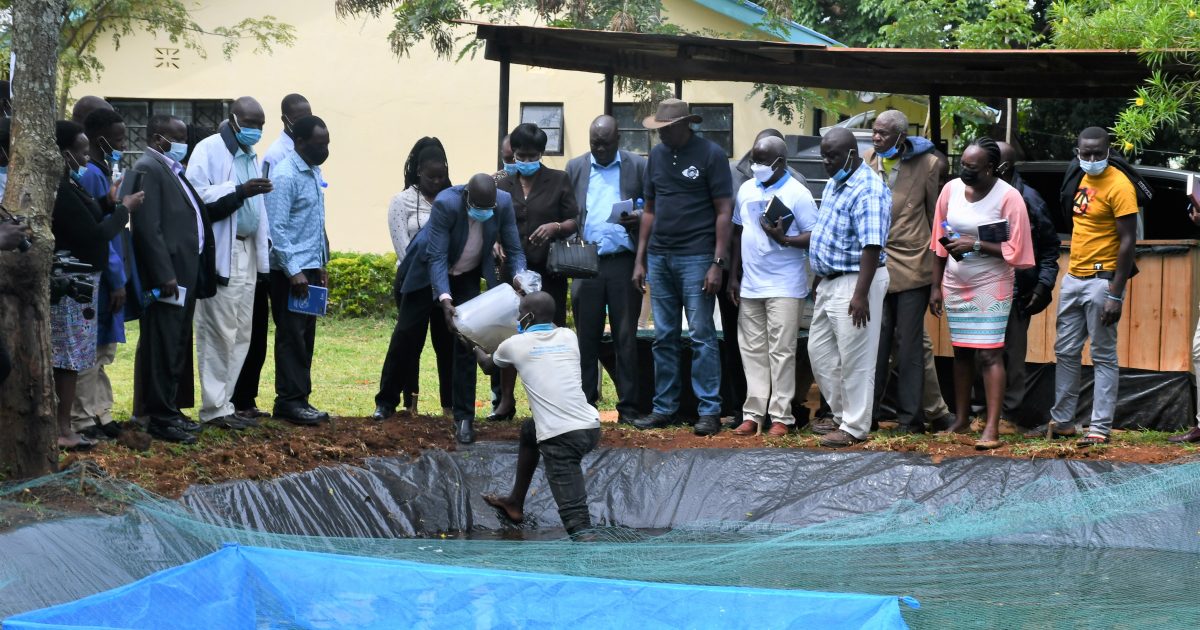Some 100 fish farmers in drawn from six sub counties of Siaya County have received a donation of 100,000 Nile Tilapia fingerlings from Victoria Farms Limited, in a government move aimed at fostering close partnership with the private sector to address challenges facing the sector.
Fisheries PS Dr. Francis Owino, speaking to the beneficiaries at the Siaya County fisheries offices in a speech read on his behalf by Deputy Director in the Ministry Titus Kilonzi said availability of quality fish seed and feeds continues to be a major challenge that accounts for a huge percentage of the overall cost of production.

Dr. Owino said the growing focus and shift from the capture fisheries to aquaculture, occasioned by the increased pressure on the country’s water bodies that include Lake Victoria has of late seen more and more involvement and interventions by the private sector.
He said there was need for the private sector to complement the efforts of the government to address the existing gaps to enable the country meet the increased per capita demand for fish.
“I am confident that we are in the right direction towards addressing challenges in the sector and meeting the increased per capita demand and bridging the national deficit for fish and fish products,” said Dr. Owino.
The PS said the government is making deliberate efforts towards spurring economic transformation and positively impacting on the lives of Kenyans and will strive to avail more inputs to the farmers.
Addressing the occasion, Siaya County Executive Committee Member (CECM) for agriculture and fisheries, Dr. Elizabeth Odhiambo called on the residents to embrace aquaculture, adding that fish production in the county was not at the optimal.
Odhiambo, who was flanked by the County Chief Officer for Agriculture Charles Siso said there was still a big gap that various players within the sector can bridge to enable the locals enhance production.
“We registered a drop in the last financial year and only realized 28,000 metric tons of fish,” said Dr. Odhiambo, adding that whatever the county produced cannot satisfy the local market.
By Philip Onyango





